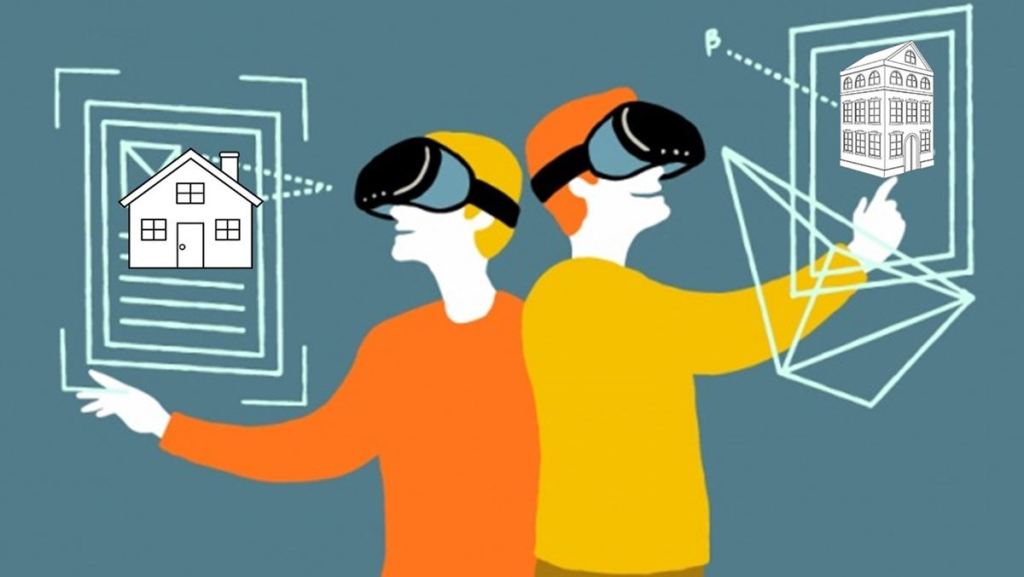In an era of rapid technological advancements, various sectors are experiencing profound transformations, and the real estate sector is no exception. The fusion of real estate and technology, often referred to as ‘RealTech’, is reshaping the traditional landscape of property development, transactions, and management. India, a nation with a burgeoning real estate sector, is witnessing the rise of RealTech as a transformative force that holds the potential to enhance transparency, efficiency, and innovation across the industry.
The term ‘RealTech’ encapsulates the integration of technology into various facets of the real estate lifecycle. From property search and financing to construction and management, technology is streamlining processes and creating novel possibilities. The catalyst for this convergence is the growing digitalization of data and the increasing availability of advanced tools such as artificial intelligence (AI), big data analytics, the Internet of Things (IoT), and blockchain.
In India’s vast and diverse real estate market, property search has often been a cumbersome process. However, RealTech has revolutionized this aspect by providing prospective buyers with efficient and user-friendly platforms for property discovery. Online listing portals have become a primary resource, offering a wide array of properties complete with detailed information, high-resolution images, and virtual tours. Virtual Reality (VR) and Augmented Reality (AR) technologies have further elevated the property viewing experience, enabling buyers to explore properties remotely and gain a realistic sense of space and ambiance.
Also Read: 10 reasons why buying a house is better than renting
The construction process has also witnessed a technological overhaul. Building Information Modeling (BIM) technology facilitates precise planning and visualization of construction projects, minimizing errors and optimizing resource allocation. Moreover, the adoption of drones for site surveys and progress monitoring provides developers with real-time insights into construction stages and potential challenges.
Blockchain technology has emerged as a game-changer in real estate by enhancing transparency, security, and trust. Property records, titles, and ownership histories can be stored on an immutable blockchain, minimizing the risk of fraud and disputes. Smart contracts, automated agreements executed upon meeting predefined conditions, have the potential to streamline transactions and reduce reliance on intermediaries.
Also, RealTech is disrupting the way property transactions are executed. Online platforms are enabling digital property transactions, reducing the need for physical paperwork and in-person interactions. Electronic signatures are becoming more widely accepted, simplifying the signing process and accelerating deal closures. The implementation of a digital land registry can further streamline property transfers and minimize the complexity of the process.
Technology is also making strides in optimizing asset and facility management. IoT devices integrated into buildings collect data on energy consumption, occupancy patterns, and maintenance needs. This data-driven approach empowers property managers to make informed decisions, enhance operational efficiency, and improve tenant experiences.
In fact, one of the most significant contributions of RealTech in India lies in the realm of affordable housing. Government initiatives like the Pradhan Mantri Awas Yojana (PMAY) are leveraging technology to expedite the approval and monitoring processes for affordable housing projects. Digital platforms provide a centralized repository for project data, facilitating efficient project tracking and evaluation. These technologies reduce administrative bottlenecks, lower costs, and accelerate the delivery of housing units to those in need.
The Indian RealTech ecosystem comprises a diverse range of startups, established tech companies, and real estate developers embracing technology. Startups are innovating in areas such as property management software, virtual property tours, AI-driven property valuation, and crowd-sourced property insights. Established players are incorporating technology into their operations, leveraging data analytics for market insights and process optimization.
While RealTech offers transformative potential, its adoption does come with challenges. Infrastructural gaps, digital literacy barriers, and cybersecurity concerns need to be addressed to ensure the equitable distribution of benefits across all segments of the population. Collaborative efforts between government bodies, tech companies, and educational institutions are essential to bridge these gaps and promote tech-enabled growth.
The rise of RealTech in India’s real estate sector presents a unique opportunity for sustainable development and innovation. As technology continues to evolve, the integration of AI, IoT, blockchain, and data analytics will become more sophisticated, enabling smarter decision-making, cost savings, and an enhanced customer experience.
We can say that RealTech is ushering in a new era for India’s real estate landscape. Its transformative impact spans property search, construction, transactions, and management. By fostering transparency, efficiency, and innovation, RealTech has the potential to redefine how real estate is perceived, experienced, and managed, ultimately creating a more accessible, responsive, and vibrant real estate ecosystem for India’s diverse population.
(By Jay Morzaria, National President of NextGen NAREDCO. Views are personal)

